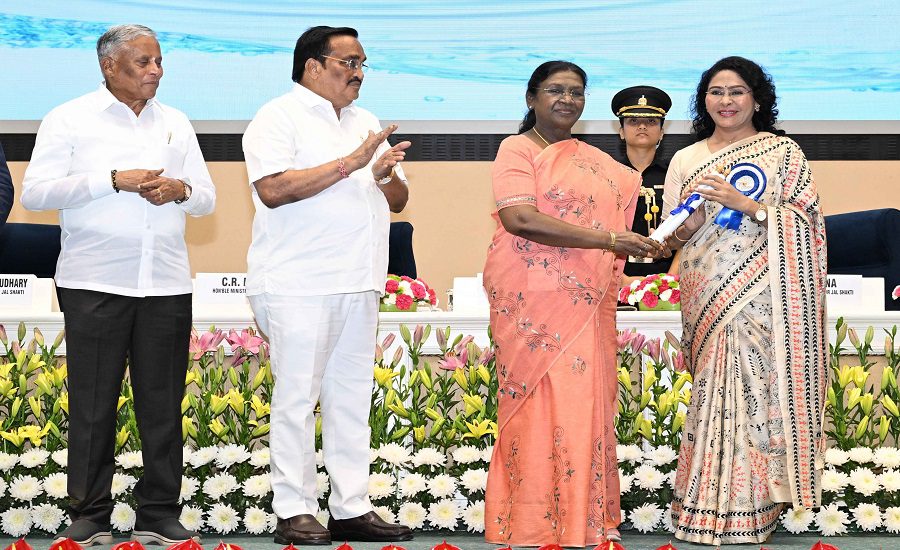Bhopal: Khandwa district in East Nimar has achieved a remarkable milestone in water conservation under the “Jal Sanchay, Jan Bhagidari” (Water Conservation, Public Participation) campaign, emerging as a national leader in the South Zone. For its outstanding efforts, the district has been awarded a Rs 2 crore incentive by the Government of India.
The award was presented by President Droupadi Murmu to Khandwa’s District Collector Rishav Gupta and Chief Executive Officer of the District Panchayat, Nagarjun Gowda, during a ceremony held at Vigyan Bhawan, Delhi. The event also recognized other districts excelling in various water conservation initiatives.
Record-Breaking Achievement in Water Structures
Under the campaign, districts were given targets to construct a minimum number of water conservation structures. Khandwa exceeded expectations by completing and registering over 1.29 lakh structures, the highest in the country, setting a new benchmark for other regions.
Officials highlighted that these efforts have significantly improved groundwater levels, ensured optimum utilization of rainwater, and strengthened water security for future generations.
Boosting Local Water Security and Public Participation
The initiative, launched on September 6, 2024, in Surat, emphasizes community engagement and public participation in water conservation projects. Khandwa’s success demonstrates the impact of coordinated local efforts in creating sustainable water resources.
President Murmu also recognized other exemplary districts, including Guna municipal body, which ranked among the top 50 urban local bodies nationwide. Guna implemented 2,231 rainwater harvesting systems in urban areas and renovated existing wells, exceeding its target and contributing to enhanced urban water security.
Incentive for Future Development
The Rs 2 crore incentive awarded to Khandwa will be utilized to further strengthen water conservation efforts and support district development projects. Officials stated that the recognition not only motivates continued progress but also serves as a model for other districts aiming to improve water management and public engagement.
Through such initiatives, Madhya Pradesh is setting a national example in sustainable water management and community-driven development, showcasing how local governance and public participation can secure essential resources for the future.





























